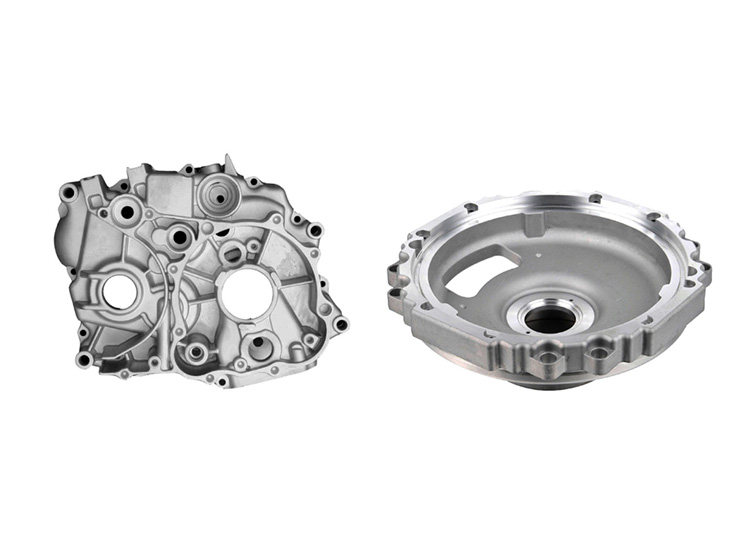The 45-Second Trick For Alcast Company
The 45-Second Trick For Alcast Company
Blog Article
Getting My Alcast Company To Work
Table of ContentsThe Facts About Alcast Company RevealedAlcast Company for BeginnersThe Buzz on Alcast CompanySee This Report on Alcast CompanyAlcast Company Fundamentals ExplainedThe Main Principles Of Alcast Company
Chemical Comparison of Cast Aluminum Alloys Silicon promotes castability by decreasing the alloy's melting temperature and boosting fluidness during spreading. In addition, silicon adds to the alloy's toughness and put on resistance, making it valuable in applications where resilience is essential, such as auto components and engine elements.It additionally boosts the machinability of the alloy, making it much easier to process right into ended up products. In this means, iron adds to the overall workability of aluminum alloys.
Manganese adds to the toughness of aluminum alloys and boosts workability. Magnesium is a lightweight component that supplies stamina and influence resistance to aluminum alloys.
The smart Trick of Alcast Company That Nobody is Discussing
It allows the production of light-weight elements with exceptional mechanical homes. Zinc improves the castability of aluminum alloys and aids control the solidification procedure during spreading. It improves the alloy's strength and solidity. It is typically located in applications where detailed forms and great information are needed, such as attractive spreadings and certain auto components.

The key thermal conductivity, tensile toughness, yield strength, and prolongation differ. Select suitable raw materials according to the performance of the target product created. Among the above alloys, A356 has the highest thermal conductivity, and A380 and ADC12 have the most affordable. The tensile limitation is the opposite. A360 has the very best return stamina and the highest possible elongation rate.
Rumored Buzz on Alcast Company
In accuracy spreading, 6063 is well-suited for applications where complex geometries like this and top notch surface coatings are extremely important. Examples consist of telecommunication units, where the alloy's remarkable formability enables sleek and aesthetically pleasing layouts while maintaining structural stability. Likewise, in the Illumination Solutions market, precision-cast 6063 elements create elegant and efficient lights components that require intricate forms and excellent thermal efficiency.
It results in a finer surface area finish and far better deterioration resistance in A360. The A360 displays remarkable elongation, making it excellent for complex and thin-walled components. In accuracy spreading applications, A360 is fit for sectors such as Consumer Electronics, Telecommunication, and Power Tools. Its boosted fluidity enables for intricate, high-precision components like smart device cases and interaction tool housings.
The Ultimate Guide To Alcast Company
Its one-of-a-kind residential or commercial properties make A360 a useful choice for precision casting in these industries, improving item durability and top quality. Aluminum alloy 380, or A380, is a widely used casting alloy with numerous unique characteristics. It offers outstanding castability, making it an optimal choice for precision spreading. A380 displays good fluidity when molten, ensuring elaborate and comprehensive molds are properly recreated.
In precision spreading, light weight aluminum 413 shines in the Customer Electronic Devices and Power Equipment industries. This alloy's premium rust resistance makes it an outstanding choice for exterior applications, making sure lasting, sturdy products in the pointed out industries.
The Main Principles Of Alcast Company
When you have actually made a decision that the aluminum die casting procedure is suitable for your job, an essential following action is choosing on one of the most appropriate alloy. The aluminum alloy you pick will substantially affect both the spreading procedure and the residential properties of the last product. Since of this, you have to make your decision very carefully and take an educated approach.
Figuring out the most appropriate aluminum alloy for your application will suggest considering a vast variety of attributes. The very first category addresses alloy characteristics that influence the production process.
Alcast Company for Dummies
The alloy you choose for die spreading directly influences several facets of the casting procedure, like how very easy the alloy is to work with and if it is vulnerable to casting problems. Warm breaking, additionally called solidification fracturing, is a normal die spreading flaw for aluminum alloys that can cause internal or surface-level rips or fractures.
Particular light weight aluminum alloys are more prone to warm breaking than others, and your option ought to consider this. An additional common issue found in the die casting of light weight aluminum is die soldering, which is when the cast adheres to the die wall surfaces and makes ejection challenging. It can harm both the actors and the die, so you should search for alloys with high anti-soldering residential properties.
Rust resistance, which is currently a notable characteristic of light weight aluminum, can differ substantially from alloy to alloy and is a necessary characteristic to think about depending on the environmental conditions your product will be exposed to (Casting Foundry). Wear resistance is another residential property generally sought in aluminum items and can set apart some alloys
Report this page